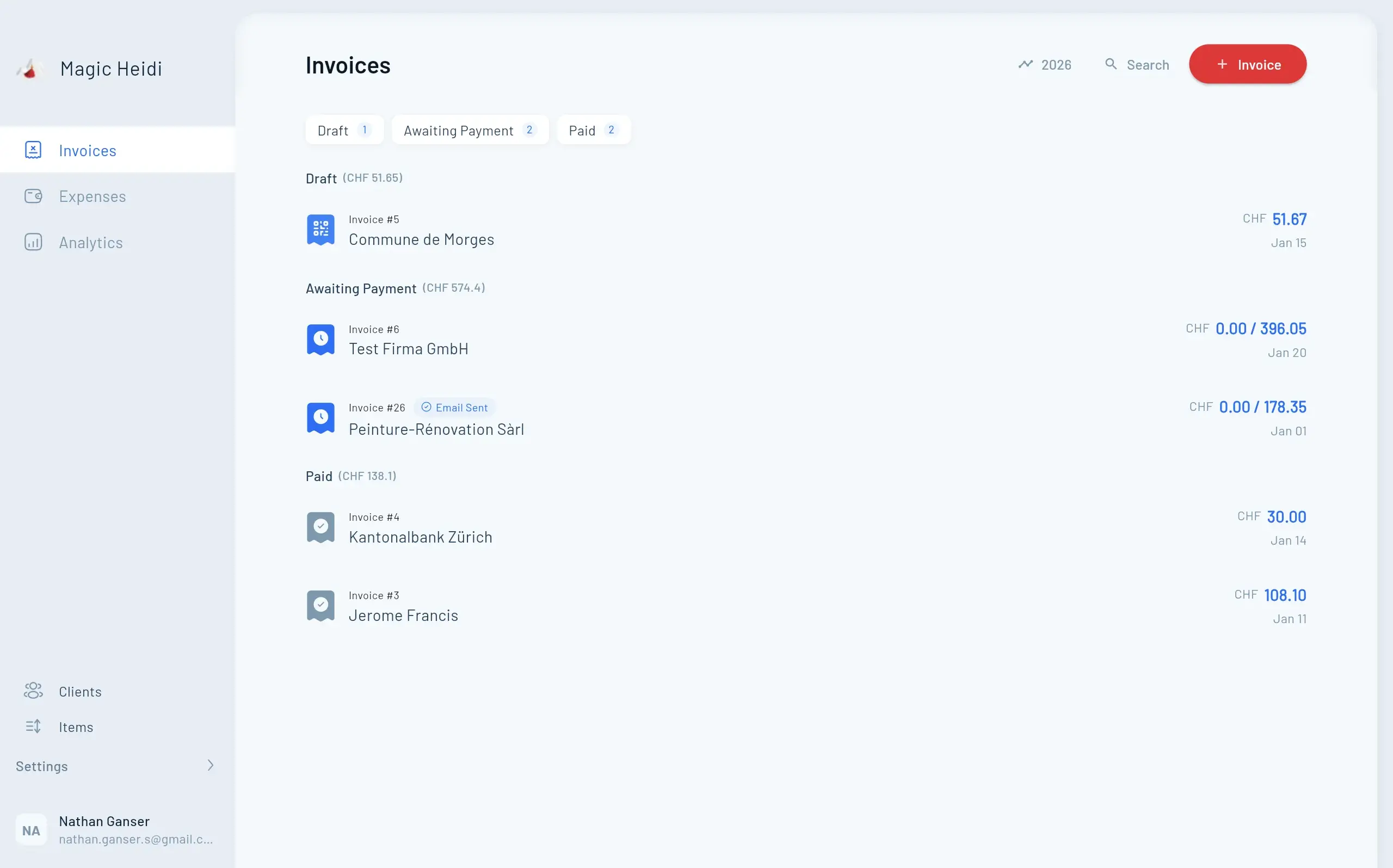Submit your residence permit application with proof of intended self-employment:
- Business plan or concept description
- Client contracts or letters of intent
- Professional qualifications
- Proof of financial means (6-12 months of operating capital)
You don't need a registered company yet—proof of sustainable income potential is sufficient. The canton will assess whether your activity is viable.
Once earning more than CHF 2,300 annually, register as self-employed with your cantonal Ausgleichskasse (compensation office). You'll pay:
- AHV/AVS (old-age insurance): 10% of net income
- IV (disability insurance): Included in AHV rate
- EO (income compensation): Included in AHV rate
- FAK (family allowances): Approximately 1% in most cantons
Total social security: approximately 11% of net income.
Minimum annual contribution: CHF 507 (even if income is low).
If your annual turnover exceeds CHF 100,000, register for VAT with the Federal Tax Administration. Standard rate: 8.1% (as of 2024, check for 2025 updates).
Below CHF 100,000, VAT registration is optional but can be beneficial if you have significant business expenses or B2B clients who can reclaim VAT.
Sole proprietorships with annual turnover exceeding CHF 100,000 must register in the Commercial Register (Handelsregister).
Cost: CHF 150-300 depending on canton.
Swiss tax law allows generous business expense deductions. You can deduct:
- Home office: Proportional rent, utilities, and maintenance (must be dedicated space)
- Professional equipment: Computers, software, tools (depreciated)
- Business travel: Mileage at CHF 0.70/km, public transport, accommodation
- Professional development: Courses, conferences, industry memberships
- Social security contributions: Full AHV/AVS deductible
- Business insurance: Professional liability, business property
- Marketing and administrative costs: Website, advertising, accounting software
Pillar 3a retirement savings: Self-employed individuals not enrolled in a pension fund (BVG) can deduct up to CHF 35,280 annually (2024 figure, adjusted yearly for inflation) into a Pillar 3a account. This reduces taxable income while building retirement savings.
If you relocate mid-year, you may be taxable in both your home EU country and Switzerland. Switzerland has double taxation agreements with all EU countries, but you must:
- Notify your home country tax authority of your departure
- Request a certificate of tax residence from Swiss authorities
- File partial-year tax returns in both jurisdictions
- Claim foreign tax credits where applicable
Consult a cross-border tax specialist for your first year—mistakes are costly.
Many freelancers move to Switzerland while maintaining their EU client base. This is legal with proper permits, but consider:
Social security: If more than 50% of your work is for Swiss clients or you operate from a Swiss base, you're under Swiss social security. If you work primarily for non-Swiss clients, you may remain under EU social security via bilateral agreements (A1 certificate). This requires advance approval.
VAT implications: Services to EU businesses are generally zero-rated for VAT purposes (reverse charge mechanism). Maintain proper documentation.
Payment processing: Set up a Swiss business bank account. Many EU clients can still pay via SEPA transfers, but expect 1-3 day processing times.





